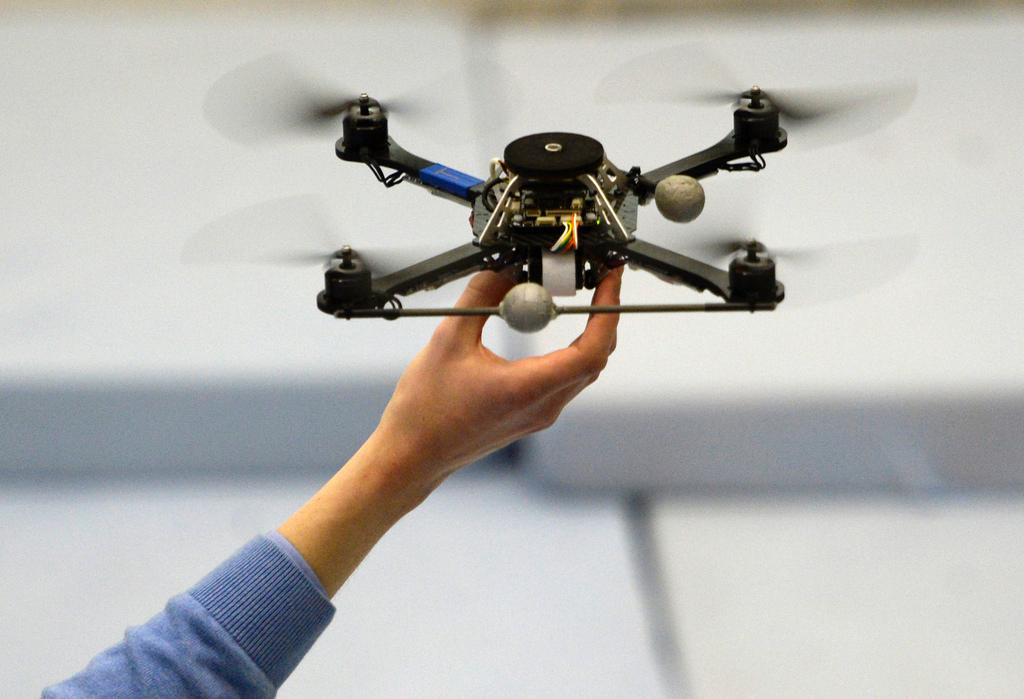
Secret service reforms: ‘a problematic shifting of responsibility’
Supporters of the new intelligence law claim the changes to the secret services’ competences are an improvement to security. But in reality the new law complicates the criminal conviction of planned terror attacks, argues politician Balthasar GlättliExternal link.
The new intelligence law (see infobox) leads to a problematic fusion of competences of criminal prosecutors and the security services and puts at risk proven principles of our constitutional state.

In a constitutional state, the authority for investigation and surveillance lies with the civil investigating authorities and not with the secret service. As a result, the Federal Office of the Attorney-General can today – if it is thought terrorist activity is being planned – listen into specific telephones, read emails and spy on people. That is, and remains, correct and important.
What would be wrong, however, would be a “secret police”, based on the US model, which could for example use keywords to comb through internet data (emails, visited sites, searches etc.).
The following points of the new intelligence law are especially problematic:
Competition between the intelligence services and the prosecution authorities
The Federal Intelligence Service (FIS) and the Office of the Attorney-General receive partially overlapping tasks and competences. The new law gives no guarantee that the FIS passes on important information in a timely manner. Conflicts, breakdowns in communication and security gaps are pre-programmed. This will be the case above all because the FIS, unlike the attorney-general’s office, can’t intervene in the case of security-threatening acts. According to the St Gallen prosecutor Thomas Hansjakob, this could lead in Switzerland, as it has abroad, to terrorists being monitored but not prevented from carrying out their crimes.

More
Secret service reforms: ‘essential to combat modern threats’
Weaknesses in the current investigating authorities
Rainer Schweizer, a professor of constitutional law at the University of St Gallen, criticises the system reform for doing more harm than good. The intelligence service will in future be its own investigating authority, he says, “alongside and ahead of the office of the attorney-general”: a preventative and independent secret police based on the US model. This would weaken the prosecution authorities, which today carry out the bulk of the work in the fight against terrorism.
Using government spyware results in less not more security
Trojan horse programmes exploit security gaps that are not known to the public or system designers. If the government buys (or allows to be bought) on the black market information about security gaps and uses these for spyware instead of informing the system designer or public, the government is contributing to the vulnerability of millions of computers from virus attacks.
Permitting hacker attacks abroad is not compatible with neutrality
An attack even on government IT infrastructure could be interpreted as a cyberattack and thus an act of war. This is not compatible with Swiss neutrality.
Intensification of cooperation with foreign services instead of counterespionage
Instead of creating an independent counterespionage service, as demanded by the Green Party, which would help protect the country and the economy from foreign political and economic espionage, the plan is to strengthen cooperation with foreign services without creating the transparency necessary for democratic control. Not even the number of mutual operations or data exchanges are due to be made public.
Leftwing political parties, trade unions and civil society groups collected more than 56,000 signatures to challenge the planned law, sponsored by the government, in a nationwide vote.
An overwhelming majority in parliament had approved the reform last September. The legal amendment that voters will decide upon on September 25 will give the Federal Intelligence ServiceExternal link (FIS) the right not only to tap phone lines but also to survey e-mails, access computer systems abroad and bug private apartments.
Previous reforms to boost the powers of the intelligence service were rejected by parliament in 2009. In 2010 the domestic and foreign units were merged to become the FIS.
A separate referendum allowing the justice authorities to install computer surveillance programmes to investigate crimes failed earlier this month. Campaigners, mainly youth chapters of political parties from the left and the right, did not succeed in collecting at least 50,000 signatures within 100 days.
The views expressed in this article are solely those of the author, and do not necessarily reflect the views of swissinfo.ch.
Opinion series
swissinfo.ch publishes op-ed articles by contributors writing on a wide range of topics – Swiss issues or those that impact Switzerland. The selection of articles presents a diversity of opinions designed to enrich the debate on the issues discussed.
Translated from German by Thomas Stephens

In compliance with the JTI standards
More: SWI swissinfo.ch certified by the Journalism Trust Initiative








































You can find an overview of ongoing debates with our journalists here . Please join us!
If you want to start a conversation about a topic raised in this article or want to report factual errors, email us at english@swissinfo.ch.